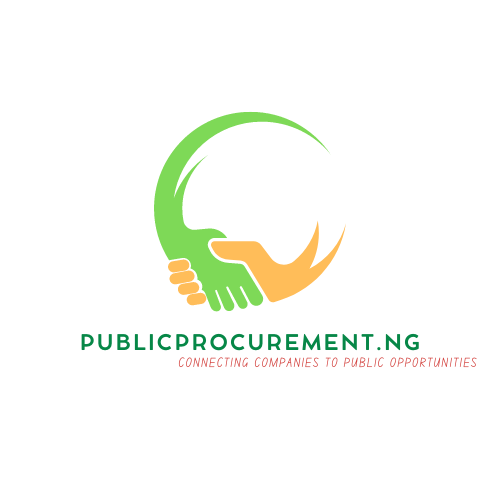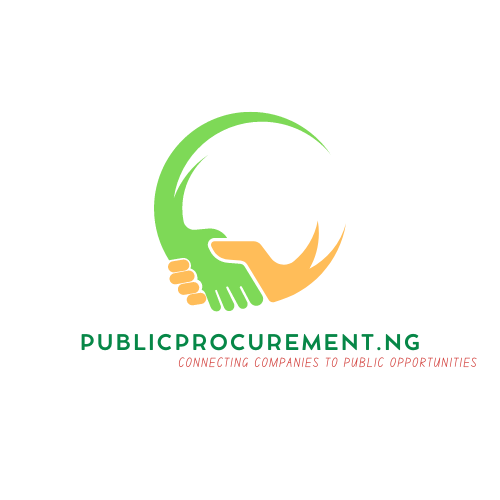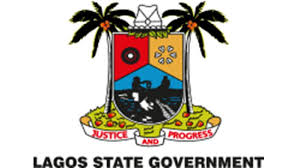CALL FOR APPLICATION: FINAL EVALUATION CONSULTANT ‘SHARING THE GREEN GRASS: DEVELOPING A LOCALLY-LED PEACE ARCHITECTURE IN THE NIGER DELTA
DELTA, NIGERIA
About the Project
To address the growing conflict between farmers and herder communities in the Niger-Delta, triggered by natural resource competition, but fuelled by mistrust and wider narratives of fear. Search is implementing the “Sharing the Green Grass: Cultivating Locally-Led Peace Architecture in the Niger Delta,” project. This is a 24-month project supporting communities to build platforms for dialogue and capacity building that will lead to improved interaction, dispute resolution and cooperation between communities. The project is beng implemented in four target Local Government Areas (LGAs) in Delta State viz: Ethiope-East, Isoko North, Ndokwa-West and Ughelli-North in partnership with Initiative for Community Development (ICD), and working closely with Miyetti Allah Cattle Breeders Association of Nigeria (MACBAN) and All Farmers Association of Nigeria (AFAN).
Goal and Objectives of the Study
The overall goal of the project is to strengthen local capacities to peacefully manage conflict and prevent violence from escalating within a locally-led peace architecture in the Niger Delta. This goal is supported by two objectives and corresponding expected results:
Objective 1: Farmer and herder communities cultivate the skills and relationships to collaborate on peace and security issues.
● Expected Result 1.1: Local partners, civil society organizations, and community members have increased capacity to identify and respond to conflicts.
● Expected Result 1.2: Farmer and herder community members have improved relationships, deeper understanding about each other, and increased trust.
Objective 2: Farmer and herder communities develop effective, sustainable local mechanisms for early warning response, dispute management, and violence mitigation
●Expected Result 2.1: Local partners and farmer-herder communities develop new mechanisms to identify and respond to early warning signs for potential violence.
●Expected Result 2.2: Farmer and herder communities improve the management and mitigation of disputes in nonviolent mechanisms within and between their communities.
●Expected Result 2.3: Local partners and stakeholders expand ownership over a sustained and scaled peace and community security architecture that includes law enforcement, government, and civil society actors.
Since the commencement of project activities, the project has reached 1547 unique beneficiaries through several training on topics such as the Common Ground approach, Conflict sensitivity and Transformative Dialogue, People to people approach to interventions and Early Warning and Early Response to threats of conflict, leaving a total of 953 unique persons pending that will be reached by the project. Other activities implemented as part of the project include multi stakeholder dialogues, town hall meetings, a peace campaign and several dialogue sessions at the community, local government and state levels. A Community Peace Committee has been set up by the project consisting of representatives of all community groups like the men, women, youth groups from both farmer and herder communities. The project has also set up a state level farmer/ herder forum aimed at dialogues and engagements on farmer/ herder issues in the state.
Furthermore, the project is implementing a radio call-in program targeting the beneficiary LGAs and a wider audience of Delta State and its environs. This program gives the opportunity for callers to express their views and understanding on topics discussed, including what they have learnt from the program and how it has changed their perception and attitude towards the conflict between farmers and herders.
Key Questions of the Study
Building understanding and trust is the most critical precondition to peace building and the project recognizes that if farmer and herder communities can improve their understanding and relationships, and locally-own and sustained mechanisms are developed for conflict prevention and dispute resolution, the risk of intergroup violence will be reduced and norms and institutions favourable towards peace and reconciliation will be reinforced.
This final evaluation will be used to capture the impact of Sharing the Green Grass project and stories of change. The purpose of the evaluation will be to provide information on the relevance, effectiveness and sustainability of the project, for internal accountability and learning which will be used for designing, planning and implementation of future programs and for accountability to donors. This will also contribute to the global knowledge about peace building.
The objectives of the evaluation:
● To determine the project’s achievements and contribution to the overall peaceful outcomes in the communities in line with the goal and objectives of the project
● To determine the extent to which the programme has enhanced the role of women and youth in peace building in the target communities.
● To assess the effectiveness and efficiency of various strategies used on the project in establishing key relationships and changed attitude of target beneficiaries
● To determine the extent to which COVID-19 has affected project implementation, impact and conflict in the implementing LGAs, and make recommendations on how to impactfully implement such projects in the face of a pandemic
● To document key lessons from the project, and make recommendations to inform such projects in future
● To assess achievements of the project, the final evaluation will also provide data for project outcome indicators including:
● Percentage of target community members interviewed who report reduced violent conflicts between members of other communities
● Percentage change in number of farmer and herder conflicts reported resulting from activity interventions supported by USG funds
● Percentage of target community members satisfied with response to farmer-herder conflict by community conflict mitigation structures
● Percentage of target community conflict mitigation structures stating that crisis response followed established procedures
● Percentage of community members who report creating new, positive relationships with members of the other community
● Percentage of participants interviewed who demonstrate greater capacities to detect, report, and respond to potential violence
● Percentage of participants interviewed who report resolving disputes between farmer-herder communities
Lines of inquiry will be determined more in detail and should include:
1) Relevance
a. How relevant were the project strategies, activities and partnerships to the specific context and objectives of the project?
b. How relevant were the project strategies, activities and partnerships to the result of the project?
2) Impact
a. To what extent can changes (intended/unintended, positive/negative) be attributed to the program?
b. What particular features of the program have made a difference in the farmer-herder conflict in the communities?
c. What is the influence of other factors and conflict context on the impact of the project?
3) Effectiveness
a. To what extent were the objectives of the intervention achieved?
b. What components of the intervention have been more successful and what components proved to be more challenging?
4) Sustainability
a. To what extent are the benefits of the program likely to persist after donor funding ceases?
b. What are the major factors that are influencing the sustainability of the program?
c. If the project has contributed to the building of relationships and linkages between farmer and herder communities, how sustainable are these relationships and linkages?
Geographic Locations
This evaluation will cover all the implementing LGAs and communities in Delta State Nigeria.
Methodology and Data Collection Tools
Using Search’s tools and guidelines for working with project beneficiaries, the study will bring the perspectives of different stakeholders together through a participatory and solutions-oriented process that specifically includes women, youth, and other marginalized groups. The evaluation will be conducted using a mixed methodology that includes both qualitative and quantitative data collection and analysis methods. This will allow for the triangulation of information, allowing for in-depth findings and recommendations. The study, from conception to recommendations will be grounded on conflict sensitivity and Do No Harm principles, to ensure that the needs of women and youths are met, in ways that do not entrench dividing lines between various groups in the community.
Operationalization of this proposed methodology is to be clearly stated in the technical offer, detailing how this research and methodology is actionable in the state and relevant to the purpose of the evaluation. In addition, the technical offer should include details on logistics and roll-out of the study: who the target respondents will be and why, how will they be identified or recruited, how data collection and data quality assurance will be carried out, as well as how data analysis will be done.
The evaluation will target community residents in the locations where the project is being implemented, as listed above and as logistically feasible. Tools for the assessment will be developed by the consultant and/ or team in collaboration with Search’s DMEL staff and research team. The inception and final reports will be developed by the consultant and/or team, and reviewed and approved by Search. The tools will be administered by the consultant and/ or team, working with a team of data collectors, while the data will be analyzed by the consultant and/or team chosen to perform this research. In addition, the consultant and/or team chosen will develop the report with guidance and reviews by Search’s DMEL team and project staff.
Search expects the following deliverables from the external consultant(s) as they correspond to the timeline and budget:
• An inception report detailing the methodology, data collection tools, and timeline;
• Any necessary training of data collectors or set-up of systems for data collection;
• Supervision and participation in data collection;
• Oversight of data coding and analysis;
• All original data submitted to Search;
• A draft evaluation report in English, for review by Search staff and partners;
• A final report in English (40 pages max in length, excluding appendices) consistent with Search branding and standards for evaluation.
• The report:
• Uses the Search evaluation template
• Explains objectives and research questions of the study, limitations, methods chosen for analysis,
• Findings respect Search’s evaluation standards, are structured around the main objectives of the study and are presented in relation to the intended target groups. The findings should speak to the link between the project, it’s Theory of Change, and its contribution to our strategy. Recommendations should have a clear audience and be specific, accessible, and actionable.
• Indicator table showing all indicators
• Appendices should include detailed research instruments, a list of interviewees, terms of references, and evaluator(s) brief biography.
Logistical Support
• Consultant(s) will be responsible for organizing their logistics for data collection (vehicles, fuel, and drivers), and this must be budgeted into the study.
• At least one Search staff member may be available to support community entry and logistics.
• Also, Search will share the required background materials to facilitate the assignment of the external consultant(s)
Ethical Considerations
• Comprehensive and systematic inquiry: The consultant should make the most of the existing information and the full range of stakeholders available at the time of the review. The consultant should conduct systematic, data-based inquiries. He or she should communicate his or her methods and approaches accurately and in sufficient detail to allow others to understand, interpret, and critique his or her work. He or she should make clear the limitations of the review and its results.
• Competence: The consultant should possess the abilities and skills and experience appropriate to undertake the tasks proposed and should practice within the limits of his or her professional training and competence.
• Honesty and integrity: Consultant should be transparent with the contractor/constituent about any conflict of interest, any change made in the negotiated project plan, and the reasons why those changes were made, any risk that certain procedures or activities produce misleading review information.
• Respect for people: Consultant respect the security, dignity, and self-worth of respondents, program participants. The consultant has the responsibility to be sensitive to and respect differences amongst participants in culture, religion, gender, disability, age, and ethnicity.
• The consultant(s) will respect Search evaluations standards, can be found in Search Evaluation guidelines: https://www.sfcg.org/wp-content/uploads/2014/07/SFCG-External-Evaluation…
Data Quality Assurance and Management
• All studies will be reviewed and approved by our country office and global Institutional Learning Team before the acceptance of the final report.
Timeline
• The study will take place between November and January, 2020; with the final deliverables due December, 2020.
Requirements
• This consultancy is open to both individuals and consultancy firms who meet the following criteria. The following skills and experience are expected by Search for our evaluator for this project:
• Advanced University degree in Social Sciences, Development Studies, International Development, or related area;
• At least 5 years of relevant professional experience working on conflict sensitivity;
• Prior experience of researching and analyzing conflict in the African context, especially within the various contexts of Niger Delta Nigeria;
• Strong speaking and writing skills in English and Hausa.
• Familiarity with development programming;
• Demonstrated experience of gender-sensitive research. Research conducted in the field of gender and conflict would be an advantage;
• Demonstrated experience in applied research, especially literature reviews;
• Experience in participatory research;
• Demonstrated experience in Programme reviews;
• Demonstrated experience in developing capacities to enable the sustainable impact of analyses/assessments;
• Demonstrated experience working with INGOs;
• Demonstrated analytical and conceptual ability, good communication and facilitation skills;
• Demonstrated strong report writing skills and be able to share examples of previous work;
• Demonstrated track record of delivering high quality written outputs on time in a consultancy environment;
• Demonstrated ability to work independently and deliver on time.
How to apply
Interested candidates are invited to send an application through our Career Portal, no later than 15th October, 2020. The application should hold four attachments:
• 1 technical offer detailing the methodology, timeframe and size of the evaluation team proposed (max 4 pages);
• 1 resume of lead researcher biography of the evaluator/ evaluation team demonstrating relevant experience/ knowledge (max 5 pages);
• 1-2 examples of past large-scale research where candidate was the lead evaluator;
• 1 financial offer (Excel) detailing the costs of the budget detailing accommodation and traveling costs, including daily rates for personnel, and all costs related to data collection (per total number of people sampled, sites for collection, per diems, accommodation, etc.), analysis, and production of deliverables.
• 2 references of organizations who can verify the quality of the consultant’s work.
COMPANIES OR FIRMS applying should include:
• Company’s Profile.
• Evidence of registration with the Corporate Affairs Commission.
• Evidence of Tax registration.
• 2 letters of reference
• Evidence of financial capability or bank support.
You need to be logged in to view the rest of the content. Please
Log In. Not a Member?
Join Us










